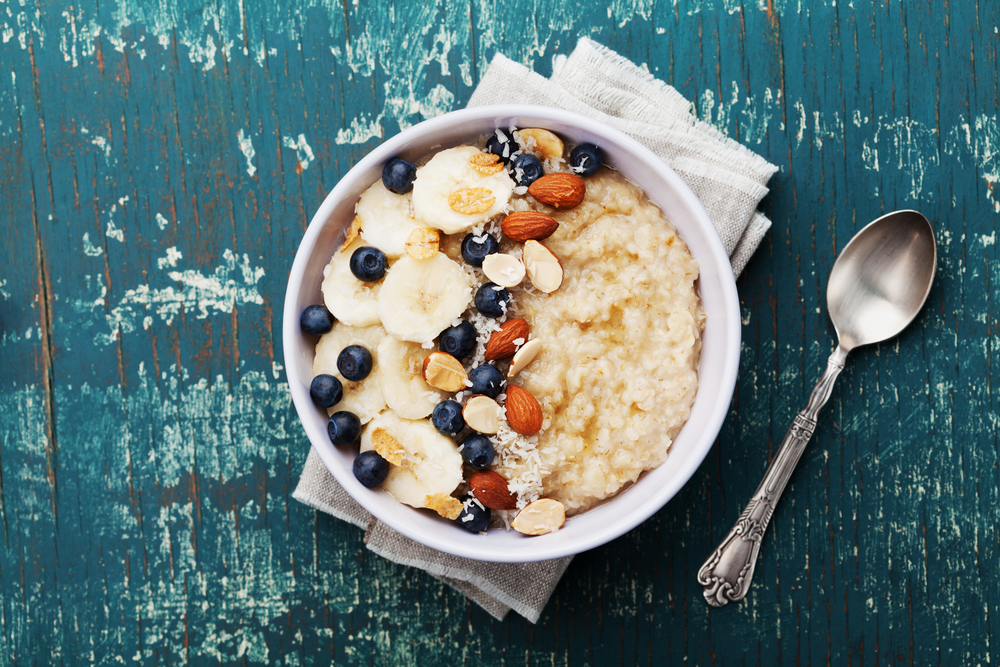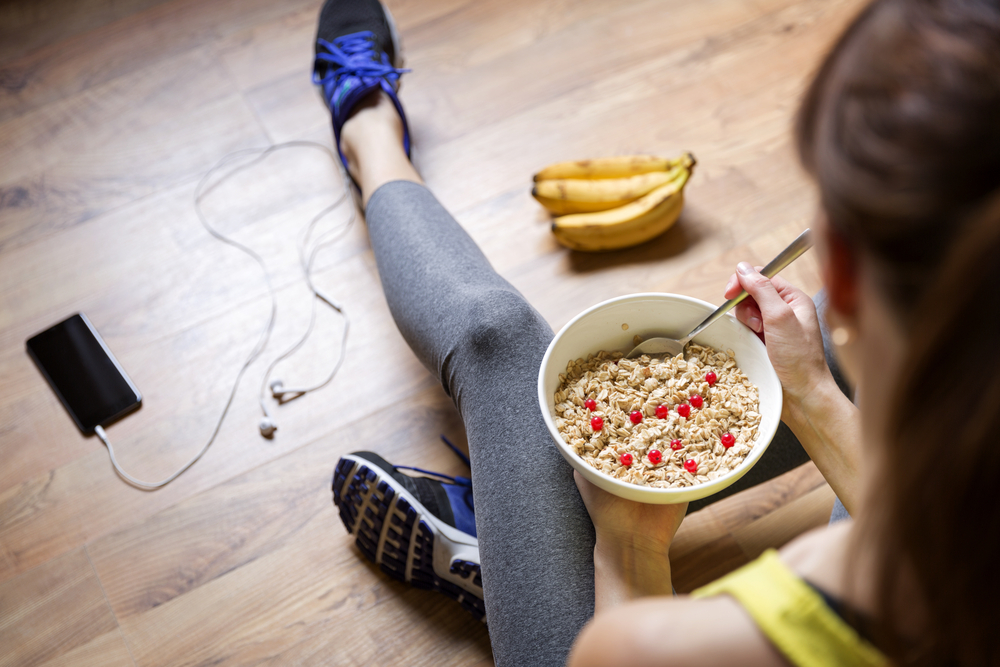It’s the little things that make the difference and eating the right things just after training will help you get results more easily
A healthy diet that suits your training is just as important as the exercise itself in reaching the goals you’ve set for yourself. Your whole workout routine can be worthless if you eat anything you get your hands on when you leave the gym.
It is important to remember that after doing high-intensity physical activity, “the muscle window of opportunity opens.” This is when muscles are more receptive to absorption and looking to recover everything depleted in training. This “muscle window of opportunity”, also known as a metabolic window, remains open for one hour after activity. During this time, everything you consume goes to building muscle, not adipose tissue (fat).
This is why it is very important to choose what you should eat just after training wisely. Remember that eating the right foods not only helps you rebuild muscle, it also helps prevent injury, fosters muscle growth and increases recovery capacity.
After training, in addition to drinking water, it is important to eat carbohydrates and protein, but the quantities will vary depending on the type of workout. Below we have some examples of what to eat after working out:
What to eat after muscle training
After a muscle-building session, it is important to take on protein in order to prevent protein catabolism (muscle breakdown). It is also good to add a small serving of carbohydrates to help the body adsorb protein better.
- Option 1. Cottage cheese or whipped fresh cheese (quark) + chia seeds: both types of cheese are high in protein, but fresh cheese has more. For a low-calorie diet, we recommend cottage cheese as it has less fat. Chia seeds are high in vegetable protein, healthy fats (omega-3) and fibre.
- Option 2. Banana pancakes: an easy, fast recipe. Just beat two eggs and a whole banana to form a batter that you can pour directly into the pan with a teaspoon of oil. The result is great pancakes without added sugars, with protein from the eggs and carbohydrates from the banana to help you recover after training.
What to eat after a mid/long-distance cardio training
After doing cardio, it is important to replace carbohydrates, which are the energy substrate for doing exercise. Glycogen reserves in the muscles are depleted and, therefore, must be replaced. For very long-distance training, it is important to add healthy fat.
- Option 1. Piece of fruit + dates + nuts: dates are a great source of carbohydrates, with nearly 60 per 100 grams. Fruit also gives you lots of carbohydrates, in addition to fibre, and nuts are a source of energy and healthy fat that is highly recommended for boosting sports performance.
- Option 2. Oat porridge: oatmeal is a recipe originally from Scotland made of milk and oats. This recipe is your perfect ally for boosting energy after a training session, since it has carbohydrates, is rich in fibre, vitamins E and B and minerals like calcium, iron and zinc.

What to eat after HIIT training
High-intensity interval training, also known as HIIT combines strength and cardio training. It challenges the body because you take it almost to the limit of its possibilities in terms of performance. In this case, food plays a very important role because it helps you recover faster and more effectively. In this case, it is very important to eat carbohydrates and protein after training.
- Option 1. Plain yoghurt + oats + piece of fruit: yoghurt is a good source of protein, as well as vitamins and calcium to help build strength in hard training sessions. Combined with oats, it is high in carbohydrates and low in fat, making it the perfect complement to get back the energy used in training.
- Option 2. 100% whole-wheat toast + avocado + smoked salmon: in this case, the whole-wheat toast gives us the foundation of carbohydrates our body needs, while the combination of salmon and avocado gives us loads of easy-to-digest protein (mainly from the salmon) and healthy fat. This is a great option for replacing energy used in the process of recovering and building muscle.
Plan your diet with our specialists
Healthy eating helps improve your performance in training and can adapt to your lifestyle. We recommend you meet with the experts in the DiR Nutrition Department. Get started by requesting your free nutritional assessment here.







What do you think?